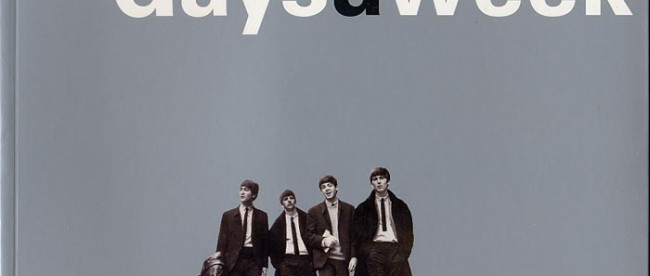The Weekender: September 4, 2015

1) “The Ketamine Connection” (BBC News, 28 minutes plus videos, July 2015). The subhead: “From Far East karaoke bars to an unlikely English city – the story of how a worrying new drug trade is made in China.” That doesn’t do it justice, though. The opening, however, does:
One of the biggest drug raids in China’s history took six years to plan and 14 hours to execute.
The target? The village of Boshe, a drug haven known by local people as “The Fortress”.
Before the raid, they thought Boshe was impenetrable.
Everyone there shares the same last name, Cai, and some say up to half of the village was involved in making chemical drugs.
There’s no doubt they made themselves rich. Inside Boshe’s Chinese temples, the drug makers used to burn sacks of real money to give thanks to their ancestors.
It was one of the first places in communist China to see flashy sports cars.
For years, waves of police from the province where Boshe lies, Guangdong, kept trying to raid the village. And for years, they failed.
Every time they tried to enter Boshe and shut down its clandestine laboratories, the villagers anticipated their arrival.
2) Via Patreon: “How a Vice President Changed the English Language.” As part of my on-going Patreon campaign, this month’s Platinum-level patron has written the linked-to guest post for my archives. This one discusses the odd history of the word “effete” and how Spiro Agnew (and his detractors) effectively changed its meaning. Enjoy!
3) “The Struggles of New York City’s Taxi King” (Bloomberg Businessweek, 13 minutes, August 2015). In the struggle between Uber and taxis, neither side comes off looking very good. So when Gene Friedman, a New York City taxi mogul sits down with a reporter to do a profile, you expect it to be very one-sided. This is no exception to that rule, but the outcome is very, very different — the taxi king comes off looking like an awful person. Here’s my favorite excerpt, but read the whole thing.
Are Freidman’s business troubles explained by disruption of the yellow cab industry? Uber’s upending of the taxi market is the single biggest factor that explains the drop in ridership and medallion values, as well as the rise in frozen credit and loan delinquencies. But almost every taxi industry player I’ve spoken to has been intent on distinguishing Freidman from the rest of the medallion owners. “He is 100 percent not representative,” says Tweeps Phillips, the executive director of another trade group, the Committee for Taxi Safety. “Gene is an issue all unto himself. His issues are his making.”
What they’re getting at is this: If Uber is chiefly responsible for driving down the price of taxi medallions, Freidman played a big role in driving it up in the first place. Allow him to explain his strategy: “I’d go to an auction, I’d run up the price of a medallion, then I’d run to my bankers and say, ‘Look how high the medallions priced! Let me borrow against my portfolio.’ And they let me do that.”
4) “The $80 Million Fake Bomb-Detector Scam—and the People Behind It” (Vanity Fair, 24 minutes, June 2015). The summary paragraph from the article itself: “When Baghdad bought tens of millions of dollars’ worth of British-made A.D.E. 651s, advertised as a foolproof bomb detector, the Iraqi government thought it would be saving countless lives. But the devices were laughable—based on a toy—and, in the end, have led to many deaths. Iraq is not the only country that has been fooled.” Yikes.
WeekenderAdUnits
5) “I Spent Two Weeks Tracking A Secret Teen White Supremacist Messaging Group” (Buzzfeed, 12 minutes, July 2015). Written by a guy named Joseph Bernstein, which I only point out because he does.
Becoming a member of a private mobile group chat for white supremacist teenagers was surprisingly easy. There was no secret password. There was no initiation. I didn’t need to recite any Aryan pride credos, disparage any minorities, or even divulge my identity — which is probably a good thing, since I’m a 30-year-old reporter with a last name that isn’t fooling anybody.
6) “Full Body Workout Every Other Day?” (The Bodybuilding.com Forums, 7 minutes, May 2008). How many days are there in a week? If you say seven, you’re right. But what happens when someone vehemently disagrees? Warning: this one has some offensive language and the decorum devolves quickly. But it’s hysterical. (By the way, there are five pages here but the first page is where all the amazing happens.)
